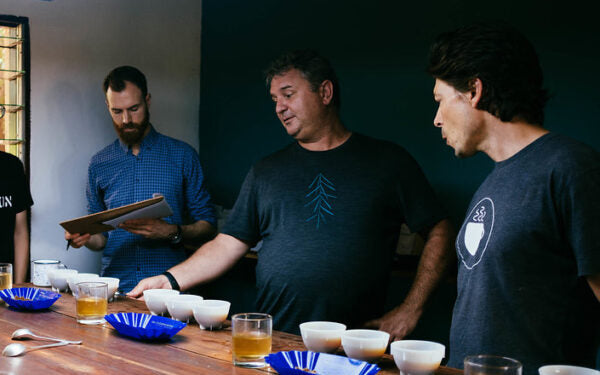I’ve been asked to write something that I’ve historically been very uncomfortable talking about it. I’ve been asked to write about why Five Senses exists and what motivated me to ditch my role as a school principal twenty years ago and start a little coffee roastery.
There were multiple reasons, but there was one reason that loomed larger than others, that provided the energy and courage to take the risk to start something from scratch.

Dean in PNG during his teaching days.
Those that know me will know that I’m not much of a philosopher; I revel in shallow talk and I don’t like to watch or listen to anything that makes me sad, angry, or scared. It doesn’t take too much for me to feel weighed down by all the unnecessary pain, suffering and injustice experienced by so many people both locally and around the world. Growing up in rural Zambia, and then living in rural Papua New Guinea, gave me a perspective I wouldn’t have otherwise had if I’d grown up in suburban Australia. It exposed me firsthand to people living in real hardship – where hardship for families could be measured in kilometres (or days) that needed to be walked to get to rural health clinic, numbers of children unable to attend school because of poverty, the number or type of meals able to be afforded in the week by families, or numbers of family members who perished from sicknesses not seen in ‘developed’ countries for decades. When you get down to it, this world is not a very fair place and it starts to look a whole lot less fair the more you experience both sides of the ledger.
I lived through these experiences as a young boy, as a teenager, and then again later as an adult and it’s impossible to ‘un-see’ or, in my case, ‘un-feel’ the disparity of wealth and privilege that existed and stills exists between myself and those who I grew up amongst in Africa and PNG. Consciously, or unconsciously this lack of fairness became one of the tints that coloured the way I started to see everything in life.

Dean in PNG on a coffee sourcing trip – 2008
I knew that, as a wage-earning educator, I would have a finite earning capacity, and knew this would limit how much of a real and lasting difference I could make in the lives of people living in relative poverty. I knew that starting a business had the potential for far greater wealth creation, and thereby a far greater capacity to positively impact people’s lives.
So, we decided to start Five Senses Coffee – for the purpose of impacting people positively. Sometimes we do this very well… and sometimes our efforts fall far short of the impact we were trying to have. We’re learning what works and what doesn’t, but our intention hasn’t changed.

Early days of the Five Senses roastery.
Speaking this out doesn’t come naturally to me as it’s a very personal journey, and I’ve always thought using the “We do good!” narrative to be a crass way of buying market approval. I have a pretty sensitive radar when it comes to companies claiming to do good as part of their marketing and branding, and have applied this to my own company by the same measure.
As years have progressed, my personal mission has become more transparent to those working within our company. Staff at Five Senses want to know they are part of a company that is purposely trying to impact people positively — and that they play an active part in our mission. I know this also applies to many individuals and cafes that buy our coffee. Buying motives have definitely evolved and consumers are wanting to know that they are buying a product from a company whose values align with their own.
As a company that operates in an industry where the raw product comes from amongst the world’s poorest nations, we have unique opportunities to work with communities that need the most help. I count this and the fact that we can do something to help as such a privilege.




